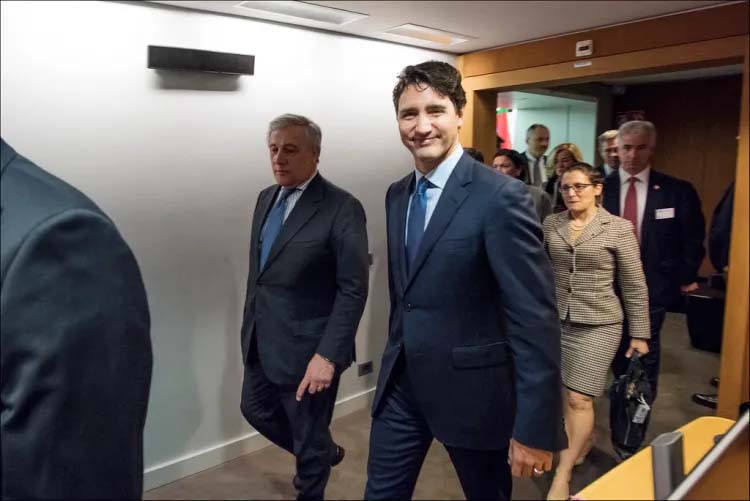As the possibility of a federal election looms in Ottawa, it is becoming increasingly clear that the Conservative Party’s bid to bring down Prime Minister Justin Trudeau’s government through a non-confidence vote is unlikely to succeed. Both the Bloc Québécois and the New Democratic Party (NDP) have indicated they will not support the Conservative motion, significantly reducing the chances of an early election.
In a decisive move, NDP Leader Jagmeet Singh announced on Thursday that his party will support Prime Minister Justin Trudeau’s Liberal government in next week’s non-confidence vote. This declaration effectively thwarts Conservative Leader Pierre Poilievre’s attempt to trigger an early election, solidifying the NDP’s role as a key player in maintaining the current political landscape.
The Conservative Party had framed the non-confidence motion as a “carbon tax election,” centering its argument on growing discontent over the federal carbon tax. However, their path to success faced significant resistance from the outset. The Bloc Québécois, led by MP Martin Champoux, made it clear they would not support the motion based solely on the carbon tax issue, particularly since Quebec operates under its own cap-and-trade system. Champoux emphasized that the Bloc’s priorities lie in other areas, such as pension reform and increasing provincial powers, rather than aligning with the Conservative platform.
This stance from the Bloc further complicated Poilievre’s push for an early election, as the Conservatives needed the support of both the Bloc and the NDP to topple the Liberal government. However, Singh’s firm declaration of NDP support for the Liberals has essentially closed that window.
Initially, there had been speculation about whether the NDP would continue its backing of the Liberal government. Earlier this year, the NDP withdrew from its supply-and-confidence agreement with the Liberals, signaling a potential shift in the party’s stance. However, Singh’s announcement on Thursday dispels rumors that his party might abstain from the non-confidence vote or align with the Conservatives.
The Bloc Québécois’ neutrality and NDP’s continued support mean that the responsibility for the outcome of the non-confidence vote now lies largely within the Liberal caucus itself. Barring an unexpected rebellion from within the Liberal ranks, the Trudeau government is expected to survive the vote, leaving the political landscape largely unchanged.
For the Conservatives, this outcome presents a significant setback. Without the backing of the Bloc or the NDP, their attempt to force an election over the carbon tax has faltered. The status quo will likely prevail, ensuring that Trudeau’s government remains intact—at least for the time being.
However, the underlying tensions in Parliament are unlikely to dissipate anytime soon. While the non-confidence vote may be averted, the fall session promises to be politically charged. With economic concerns and dissatisfaction over the carbon tax continuing to grow, opposition parties will face increasing pressure to present a unified front in future efforts to challenge the Liberal government.
As Jagmeet Singh’s NDP stands by the Liberals for now, the question remains: how long can this alliance hold in the face of rising discontent across Canada? The coming months will test the durability of this political status quo, as the government navigates economic challenges and mounting criticism from the opposition benches.

